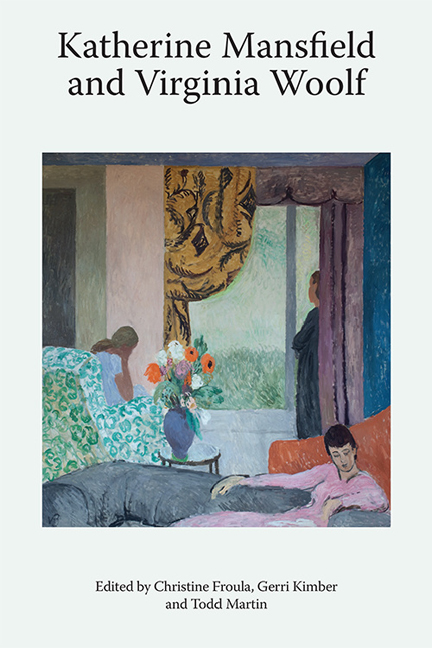Dangerous Reading in Mansfield’s Stories and Woolf’s ‘The Fisherman and His Wife’
Published online by Cambridge University Press: 07 May 2021
Summary
In their fiction, Katherine Mansfield and Virginia Woolf explore the effects of reading; both dramatise acts of reading that prove to be harmful or dangerous to the characters – usually women – who are the readers. Mansfield's ‘The Tiredness of Rosabel’ (1908) begins with an observed scene of reading as the protagonist sits beside a young woman her own age who is reading raptly. Rosabel cannot see the volume clearly; she does observe that ‘it was something about a hot, voluptuous night, a band playing, and a girl with lovely, white shoulders’ (CW1, p. 133). The book, Anna Lombard, is a middle-brow novel that centres on an illicit and unconventional love triangle in India that concludes with a preposterous though ‘moral’ ending. The edition is a cheap paperback whose pages have been ‘tear-splattered’ by the rain (CW1, p. 133). Rosabel is disgusted by the reader, who mouths the words as she reads them and licks her finger as she turns the pages on the crowded bus. The quality of the text, the physical condition of the book, and the circumstances of its consumption all suggest the common, even the vulgar. Back in her cold, rented room, Rosabel goes over the events of the working day, and her mind fixes on a dashing, wealthy young couple she has waited on. She fantasises that she could change places with the woman and imagines she is engaged to the man. The fantasy continues, becoming more elaborate and detailed, until it comes to ‘a voluptuous night, a band playing, and her lovely white shoulders’ (CW1, p. 136, Mansfield's emphasis). She goes to sleep, and wakes to another cold dawn. Mansfield is at once critiquing the mass-produced visions afforded by middle-brow, escapist tales of passion, and showing how they insinuate themselves into the minds of even those who scorn to read them in printed form. This literature, it appears, can produce illusions without even being read. As Kate Fullbrook points out,
the fact that Katherine Mansfield used these clichés to populate her character's mind is as much her comment on the power of entrenched imaginative forms to control the contents of consciousness as it is an attack on the final cruelty of such images as drugs for the minds of oppressed women.
- Type
- Chapter
- Information
- Katherine Mansfield and Virginia Woolf , pp. 117 - 128Publisher: Edinburgh University PressPrint publication year: 2018



